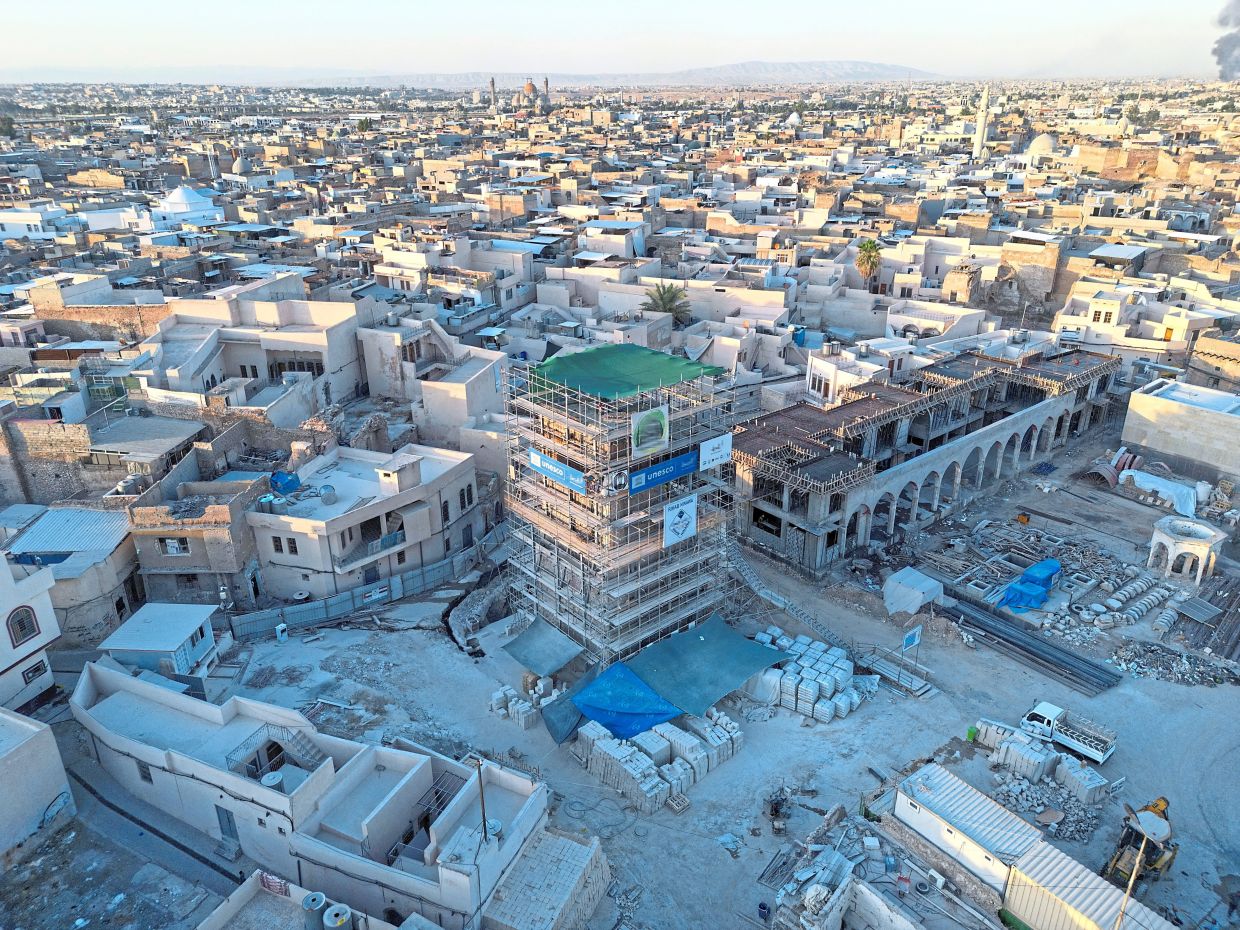The Grand al-Nuri mosque as rebuilding work continues in Mosul. — Reuters
IT was the simple night-time act of watering flowers on his street in Mosul’s Old City that made Saqr Zakaria stop and think about just how safe this last bastion of the so called Islamic State (Isis) had become since it was liberated in 2017.
“I thought for a second, ‘where am I?’” said Zakaria, who left the city in 2005 but returned to set up a cultural centre, the Baytna Foundation, in 2018 at a time when thousands of bodies were still being cleared from the ruins.
The group declared its caliphate at the Grand al-Nuri Mosque just down the road after taking Mosul a decade ago.
The maze of alleyways in this part of the city on the west bank of the Tigris River became a site of regular killings, kidnappings and crime with the rise of the insurgents after the 2003 US-led invasion.
Much of it was pulverised, and thousands of civilians were killed, in the battle to free it. But despite political infighting, allegations of corruption and delayed reconstruction, life is returning on both sides of the river.
Many of the more than two dozen people who spoke to a Reuters reporter on a four-night visit to the city said they felt more secure today than at any time in the last two decades.
“Life consisted of eating and sleeping and locking your door so you’re not kidnapped or killed or blown up. We were deprived, and today we are making that up,” said Zakaria.
His foundation, housed in a traditional Moslawi home with an inner courtyard, has become a leading attraction for local and foreign visitors, including French President Emmanuel Macron in 2021.
Shortly after he spoke, an elderly man walked into the courtyard and shed tears at the sight of pictures, hung on a wall, of the city’s intellectual and cultural elite that harkened back to better days.
“This is Mosul,” said Nizar Al-Khayat, a former school director in his 70s, his voice wavering. “No matter what, it remains a cultured, civilised city.”
Local officials and residents say there is a long way to go before Mosul sheds the legacy of Isis.
Rubble is still being cleared seven years after the city was liberated. Pockmarked buildings with collapsed floors and exposed rebar can still be seen around Mosul. The Old City is in ruins. But bridges have gone up. New restaurants have opened where patrons tuck into Lebanese cuisine and sway their heads to the nostalgic sound of Syrian tenors.
A souk and curbside cafes by the river buzz with life late into the night, formerly unthinkable in a city where people locked themselves in their homes by late afternoon.
Even as the city works to restore basic infrastructure, it is focused on expanding green areas and touristic attractions like a new riverside corniche, said Firas al-Sultan, a technical adviser to Mosul municipality.
Monuments to the city’s rich inter-faith history, like the Grand Nuri Mosque and the Al-Tahera Church visited by Pope Francis in 2021, are being rebuilt. — Reuters








